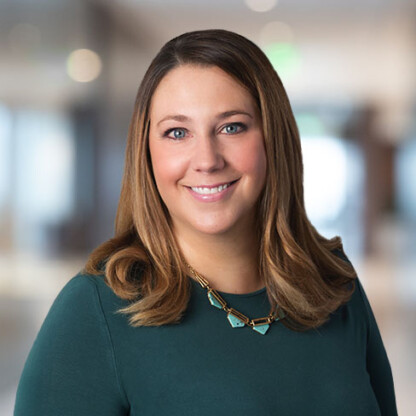
A recent advisory opinion issued by the Office of the Inspector General (OIG) has generated a great deal of buzz in the ambulatory surgery center (ASC) world. However, in some ways, the buzz is overstated and does not ultimately change how ASCs will be allowed to operate. This article presents some key takeaways on what AO 21-02 means, and what it does not.
Legal Framework
The ownership of, and referral to, an ASC by a physician is not subject to the federal Stark Law, but will implicate the federal Anti-Kickback Statute (AKS). The AKS prohibits any person from “knowingly and willfully” providing any remuneration to induce referrals, or in exchange for referrals, of federal health care program patients or business. (See 42 USC 1320a-7b(b).) AKS is a criminal, intent-based statue that applies liability to both sides of an impermissible “kickback” transaction. Many states have comparable anti-kickback legislation. Given that the primary investors in an ASC are physicians, it is important to consider the impact of physician ownership and referral arrangements in structuring any ASC transaction.
Under the AKS, the OIG has promulgated certain “safe harbors”, such that if all the criteria of the applicable safe harbor are satisfied, an arrangement can be immunized from prosecution. There is a robust safe harbor for single-specialty, multi-specialty, and surgeon-owned or hospital/physician-owned ASCs. (See 41 C.F.R. § 1001.952(r).) Failure to meet all safe harbor criteria, however, does not necessarily mean there is a violation of the law, and in fact, many ASCs do not meet all applicable criteria. In these cases, the facts and circumstances of the arrangement should be reviewed in their entirety, to determine whether the necessary intent to induce referrals is present. For that reason, in structuring an ASC transaction, it is important to approximate safe harbor criteria, and also consider applicable regulatory guidance such as OIG advisory opinions. While advisory opinions are limited to the specific parties that requested the opinion (and only to the extent that the facts certified by the requester are indeed accurate), they are a useful barometer for how the regulators would likely review similar arrangements.
Advisory Opinion 21-02 Takeaways
AO 21-02 concerns a multi-specialty ASC joint venture owned by a health system, certain orthopedic surgeons and neurosurgeons employed by the health system, and a manager/developer. As proposed, the arrangement would not be eligible for “safe harbor” protection for a few reasons, most notably, because the health system would be in a position to influence referrals to the ASC through its employed physicians, and also because not all neurosurgeons would derive one-third of their medical practice income from the performance of “ASC-Qualified Procedures.” Nevertheless, the OIG found that the transaction posed a sufficiently low risk of fraud and abuse. The following are a few key takeaways from AO 21-02:
- Depending on the facts, failure to meet volume or income safe harbor criteria may not pose significant regulatory risk. For each applicable ASC safe harbor, the ASC is intended to serve as an extension of the physician’s practice. (See 41 C.F.R. § 1001.952(r).) Under safe harbor criteria, at least one-third of each physician investor’s yearly medical practice income must be derived from his or her performance of ASC-qualified procedures, and (except for single-specialty ASCs) at least one-third of the physician’s yearly procedures must be performed at the specific ASC. Certain physician specialties, such as neurosurgery, would not likely be eligible for this safe harbor protection since those specialties rely heavily on inpatient hospital procedures. Nevertheless, AO 21-02 found this would not create high risk. Importantly, the neurosurgeons investing in the ASC were expected to use the ASC on a regular basis as part of their medical practices (regardless of whether they satisfied the 1/3 income threshold). In addition, the specialists would typically personally perform procedures at the ASC. That is, they would rarely cross-refer to other surgeon investors.
- Investment in ASCs by hospital-employed or contracted physicians is permissible. Since a hospital is in a position to make or influence referrals directly or indirectly to its physician employees and contractors, investment by those physicians in a hospital-affiliated ASC would fall outside of the applicable safe harbor. However, certain precautions can be taken to ensure there is sufficiently low risk of fraud and abuse. The hospital should not require or encourage employed or contracted physicians to refer patients to the ASC or its physician owners. The hospital should not track referrals made to the ASC. Finally, no hospital-affiliated physician should be compensated in a way that relates, directly or indirectly, to the volume or value of referrals to the ASC or its physician investors.
- AO 21-02 reinforced a “best practice” that proposed physician investors should generally be given the opportunity to invest on equal terms. Each ASC safe harbor requires that the ASC not offer ownership to any party based on the previous or expected volume or value of referrals. While appropriately structured, physicians may hold different levels of equity in an ASC, careful consideration and consultation with counsel is recommended. This is because if the ASC has multiple levels of ownership or criteria for investment, it could imply that physicians are being selected based on their presumptive referral patterns. In the arrangement described in AO 21-02, physicians typically held 4-8% of the ASC; however, in a footnote, the OIG found it important to highlight that each physician would determine the percentage ownership he or she owned, and that neither the health system, the manager, nor ASC itself would participate in the physicians’ investment decision.
- Investments through physician groups continues to be a “red flag” for the OIG. Where a physician group, and in particular a multi-specialty group, is permitted to invest in an ASC, the OIG has previously found a substantial likelihood of cross-specialty referrals for services performed in the ASC. In other words, those group physicians for whom the ASC is not an extension of their office practices would be able to profit from their referrals to the ASC or to their partners who perform procedures there. AO 21-02 reinforced this view, citing that a pass-through entity could be used to redirect revenues to reward referrals or otherwise erode the safeguards provided by direct investment. For this reason, ASC investments that would use a holding company or physician group practice as the investor should be structured in consultation with counsel.
- Finally, it remains important to structure all other components of an ASC opportunity to comply with the applicable fraud and abuse requirements. For example, jointly held real estate should comply with the AKS safe harbors for space rental and equipment rental, and any services performed by the hospital for the ASC should comply with the safe harbor for personal services and management contracts and outcomes-based payments. In addition, the ASC and its investors should provide written notice of their investment interest to referred patients and the ASC should implement other safeguards designed to reduce fraud and abuse risks (e.g., improper billing).
AO 21-02 brought renewed attention to the ASC regulatory framework. In it, the OIG indicated some regulatory flexibility for physician investors, such as neurosurgeons or spine surgeons, whose specialties could otherwise preclude them from performing a substantial volume of surgery in the ASC setting. AO 21-02 also serves to support allowing hospital physician employees to invest in a hospital-affiliated ASC, so long as certain guardrails are observed. However, the guardrails themselves are not new and AO 21-02 did not significantly change the framework under which an ASC transaction should be structured. Similarly, AO 21-02 encourages following well-established practices in structuring an ASC investment opportunity.
Foley is here to help you address the short- and long-term impacts in the wake of regulatory changes. We have the resources to help you navigate these and other important legal considerations related to business operations and industry-specific issues. Please reach out to the authors, your Foley relationship partner, or to our Health Care Practice Group with any questions.

